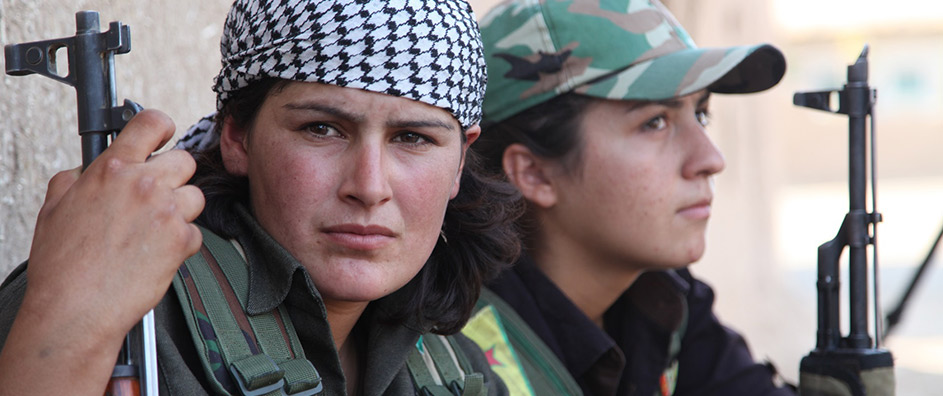The discourse on women in contemporary society often oscillates between the archetypes of Combat Soldiers and Amazons of Peace, frameworks that provoke thought regarding the roles women play in both traditional and progressive contexts. The Bahá’í Faith offers a unique perspective that embodies principles of equality, compassion, and transformational leadership, leading us to explore these contrasting images and their deeper implications in the light of Bahá’í teachings.
To understand this dialectic, it becomes essential to first unpack the metaphoric representation of “Combat Soldiers.” This term, in modern parlance, suggests a readiness to engage in struggle—be it social, political, or ideological. The image of the Combat Soldier often invokes notions of warrior-like resilience, fierce independence, and unyielding determination. In many narratives, women are depicted as figures who combat societal norms and injustices, asserting agency in environments typically dominated by patriarchal structures. These women are often celebrated for their audacity—be it in activism, academia, or various forms of leadership.
Conversely, the moniker “Amazons of Peace” reflects an inclination towards nurturing, reconciliation, and the constructive aspects of human relationships. This archetype encourages a discourse centered on collaboration, empathy, and a commitment to social harmony. Historically, the Amazons, a tribe of warrior women in myth, symbolize both ferocity and the strength drawn from community and kinship. This duality presents an enlightening contradiction; it challenges us to consider whether such contrasting ideals are necessarily mutually exclusive.
From a Bahá’í perspective, the interplay of these symbols aligns closely with the principles of gender equality and the vital contributions that women make to societal evolution. The teachings stress the importance of balance—an equilibrium between assertiveness and compassion. This balance becomes manifest in the roles women can play, encapsulating both the vestige of the warrior’s strength and the healer’s gentleness.
The Bahá’í writings extol the capacity of women to fulfill multifaceted roles. A fundamental tenet of this belief system is that the progress of humanity is inherently linked to the empowerment of women. In a world where women remain marginalized in numerous contexts, the Bahá’í Faith offers a revolutionary framework that supports women’s participation in all spheres of life. This principle is not merely an advocacy for equality but a recognition of women as indispensable agents of peace and justice.
Deeply rooted in the Bahá’í Faith is the understanding that true progress can only occur through the joint efforts of both men and women. This partnership resonates profoundly with the notion of women as “Amazons of Peace.” When women engage in efforts focused on reconciliation and dialogue, they act as catalysts for change—energizing communities toward collective betterment. In contrast, the “Combat Soldier” archetype serves to remind us of the tenacity that underlies such an endeavor; it requires a courageous spirit to advocate for peace in tumultuous environments where conflict may seem inevitable.
A fascinating observation within this context is the societal fascination with the Combat Soldier image. This archetype often thrives in media representations and popular culture, celebrating women who confront challenges head-on. Yet, it is critical to evaluate the deeper reasons that underlie this fixation. The narrative of the Combat Soldier tends to glorify individualism and personal success against adversarial forces. However, it may also overshadow the communal and supportive roles traditionally associated with women—roles that are equally, if not more, significant in fostering enduring peace.
What, therefore, is the balancing act between these two archetypes? The Bahá’í Faith posits that the strength of women as Combat Soldiers can coexist harmoniously with their roles as Amazons of Peace. Embracing both aspects allows women to operate not merely within the confines of societal expectations but rather to redefine them. By acknowledging the value of nurturing and promoting peace, women can strategically utilize their combativeness to challenge injustices without compromising their inherent qualities of empathy and compassion.
Moreover, the Bahá’í teachings emphasize education as a transformative tool for women. Education equips women with the skills to navigate the socio-political landscape effectively, enhancing their capacity to serve as leaders and advocates for peace. Knowledge is power; in the hands of women, it serves as a formidable weapon against oppression and ignorance. Empowered through education, women can become influential players—articulating a new paradigm that integrates both strength and sensitivity, assertiveness and kindness.
The role of women as both Combat Soldiers and Amazons of Peace thus invites a critical examination of societal constructs. As individuals who embody resilience and compassion, women have the unique ability to drive dialogues around peace and justice while simultaneously confronting adversities. The Bahá’í teachings encapsulate this dynamic, urging society not merely to acknowledge the strengths of women but to amplify their voices in the ongoing quest for equity.
In conclusion, the juxtaposition of women as Combat Soldiers and Amazons of Peace invites nuanced reflections on gender roles. The Bahá’í perspective presents a holistic understanding that encourages the exploration of these identities as complementary forces. By embracing both aspects, women can redefine not only their own roles but also the broader social narrative—paving the way for a future where peace transcends conflict, and strength is synonymous with compassion.
